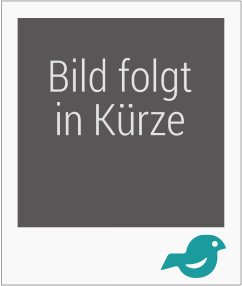Foreword Preface: Small and medium-sized Towns and Cities in the Baltic Sea Region Thilo Lang: Socio-Economic Regeneration Outside of Agglomerations – Local Economic Development in the Baltic Sea Region Introduction Scope: Strengthening Small and Medium Sized Cities Central Questions, Proceeding and Methodology 1. Theoretical background 1.1 Socio-Economic Transformation and Urban Decline 1.1.1 Structural Change 1.1.2 Urban Transformation and Decline 1.2 Socio-economic Regeneration 1.2.1 Urban and Socio-economic Regeneration 1.2.2 Concepts of Socio-economic Regeneration 1.3 Institutional Change 1.3.1 Institutions and Urban Governance 1.3.2 Facilitating Change 1.4 Interim Conclusion: Insights and Priorities 2. Socio-economic Transformation – Case Studies 2.1 The Cases 2.2 Socio-economic Development in Regional and National Contexts 2.2.1 Economic Development 2.2.2 Population Development 2.2.3 Registered Unemployment 2.3 Economic Transformation and Local Response 2.3.1 Jüterbog 2.3.2 Nakskov 2.3.3 Lappeenranta 2.3.4 Sillamäe 2.3.5 Kuldiga 2.4 Socio-economic Regeneration Projects (Core-Projects) 2.4.1 Jüterbog: Arbeitslosenservice – Unemployment-Service 2.4.2 Nakskov: Activering Syd – Centre for Activation and Qualification 2.4.3 Lappeenranta: Meeting Place Asukastila and the TRIPLA Project 2.4.4 Sillamäe Inkubatsioonikeskus – Business Incubator 2.4.5 Kuldiga: Malo Businessman Competition 3. Moving Ahead: Findings and Recommendations 3.1 Characteristics of Development 3.1.1 Urban Transformation 3.1.2 Local Response and Institutional Change 3.2 General Findings 3.2.1 Similar Challenges, Distinct Response 3.2.2 Local Strategies and Socio-economic Regeneration 3.3 Recommendations 3.3.1 Strategic Local Socio-economic Regeneration 3.3.2 National and EU Policies Supporting Socio-economic Regeneration Conclusions Literature, Internet Monika Sonntag and Eric Tenz: Cultural Policy and Urban Development – Cultural Policy Strategies and Experiences of Cities in the MECIBS Network 1. Introduction: Aim and Structure of the Study 2. Cultural Policy and Urban Development 2.1 Local Cultural Policy Concepts – Looking Back at the Past 30 Years 2.2 Cultural Policies – The National Contexts of the Four Local Case Studies 2.2.1 Cultural Policy in Germany 2.2.2 Cultural Policy in Latvia 2.2.3 Cultural Policy in Finland 2.2.4 Cultural Policy in Denmark 3. Cultural Policy in Historic Town Centres 3.1 Case study Jüterbog (Germany) 3.1.1 Challenges since the 1990s: Structural Change and Urban Renewal 3.1.2 Cultural Policy and Urban Development: Making Use of the Cultural Heritage 3.1.3 Conclusion 3.2 Case study Kuldiga (Latvia) 3.2.1 Challenges since the 1990s: Political Transition and Urban Renewal 3.2.2 Cultural Policy and Urban Development: Cultural Heritage and UNESCO Application 3.2.3 Conclusion 3.3 Comparison and Conclusion 4. Cultural Policy in Industrial Towns 4.1 Case Study Lappeenranta (Finland) 4.1.1 Challenges since the 1990s: Representing Karelian Culture and Acting as a Gateway to Russia 4.1.2 Cultural Policy and Urban Development: Strengthening Lappeenranta’s Role as the Centre of South Karelia 4.1.3 Conclusion 4.2 Case study Randers (Denmark) 4.2.1 Challenges since the 1990s: Managing the Transition Process and Improving the City’s Image 4.2.2 Cultural Policy and Urban Development: Putting Randers on the Map 4.2.3 Conclusion 4.3 Comparison and Conclusion 5. Conclusions and Recommendations References Appendix I: Interviews Appendix II: Basic Conditions and Local Framework Appendix III: Contact – Project Partners
Bitte wählen Sie Ihr Anliegen aus.
Rechnungen
Retourenschein anfordern
Bestellstatus
Storno

